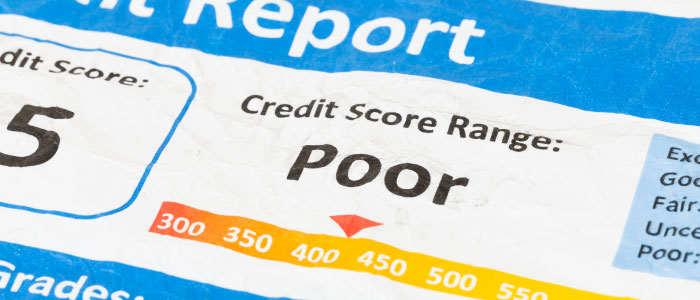
According to Experian™, the average Texan had a credit score of 661 in 2018. Those ratings are only “fair” according to FICO® scores, which range from 300 to 850, so it's no wonder that so many people are asking how to improve their credit. If you have not yet achieved a rating of good or better, read on for practical, doable steps you can take to get there.
- Find Out How You Score
FICO scores range from 300 to 850. Generally, those with higher scores are granted credit most easily and thus get better interest rates. Those better rates open doors to more opportunities. In a nutshell, a good score can help you achieve your financial goals at the lowest possible cost. Here’s how FICO scores break down:
- Poor < 580
- Fair 580–669
- Good 670–739
- Very Good 740–799
- Exceptional 800+
To learn what your score is, obtain a copy of your credit report from any of the three major credit bureaus (TransUnion, Experian, or Equifax). You can get your credit report from these bureaus for free annually, but you have to pay to see your score. If there are any errors on your report, be sure you ask these credit bureaus to investigate and correct them.
- Don’t Carry a Balance
As a general rule, you don’t want to carry a balance on your credit card because the interest rates are very high. A good practice is to only make purchases on your credit card that you could afford to pay cash for, and pay the bill immediately. This will help you rebuild your credit and also take advantage of any credit card rewards or benefits. When you pay your bill in full during the 25-day grace period, you will not be charged interest. Follow this practice consistently. - Pay Down Your Credit Card Balances
If you are carrying a balance on your credit cards, you’re not alone. Remember not to add to your debt. Be sure to pay off any new debt you incur with credit every month so you’re not adding new debt to the problem. As for the old debt, look at how much you owe. Transfer the balances to the card with the lowest rate you can get if possible, make a plan and then stick to it. (Some cards charge a fee for balances up to 3%, so it’s important that you learn about any fees and read the fine print prior to actually transferring balances.) Pay as much as you can off each month, and be patient. Target to have your total amount of outstanding revolving debt at 30% or less, of your total available credit limits. - Make Your Payments On Time
This is one of the most important factors when it comes to your credit score. So this is a non-negotiable task if you want to rebuild your credit. Pay your bills on time. Every time. - Keep Older Accounts Open
The longer you’ve had credit, the better your score will be in general. If you already have credit accounts open, keep the accounts you have had for the longest period of time. In fact, it’s really only necessary to close a card that is no longer in use when there is a high annual fee you don’t want to continue paying. Even if there were late payments in the past, pay them on time now, and the length of time you’ve had credit will be a benefit to you in the end. - Manage Your Credit Wisely
Try to maintain a variety of accounts. This can boost your score because it shows you can handle different kinds of accounts. Consider having just one of each type of major credit account (credit cards, lines of credit, personal loans, auto loans, and mortgages). Remember that is not the number of accounts you have open that affects your score, but the type of accounts and the length of time those accounts have been open that really matters. You might also consider talking to a professional who can review your specific strengths and guide you improved financial health.